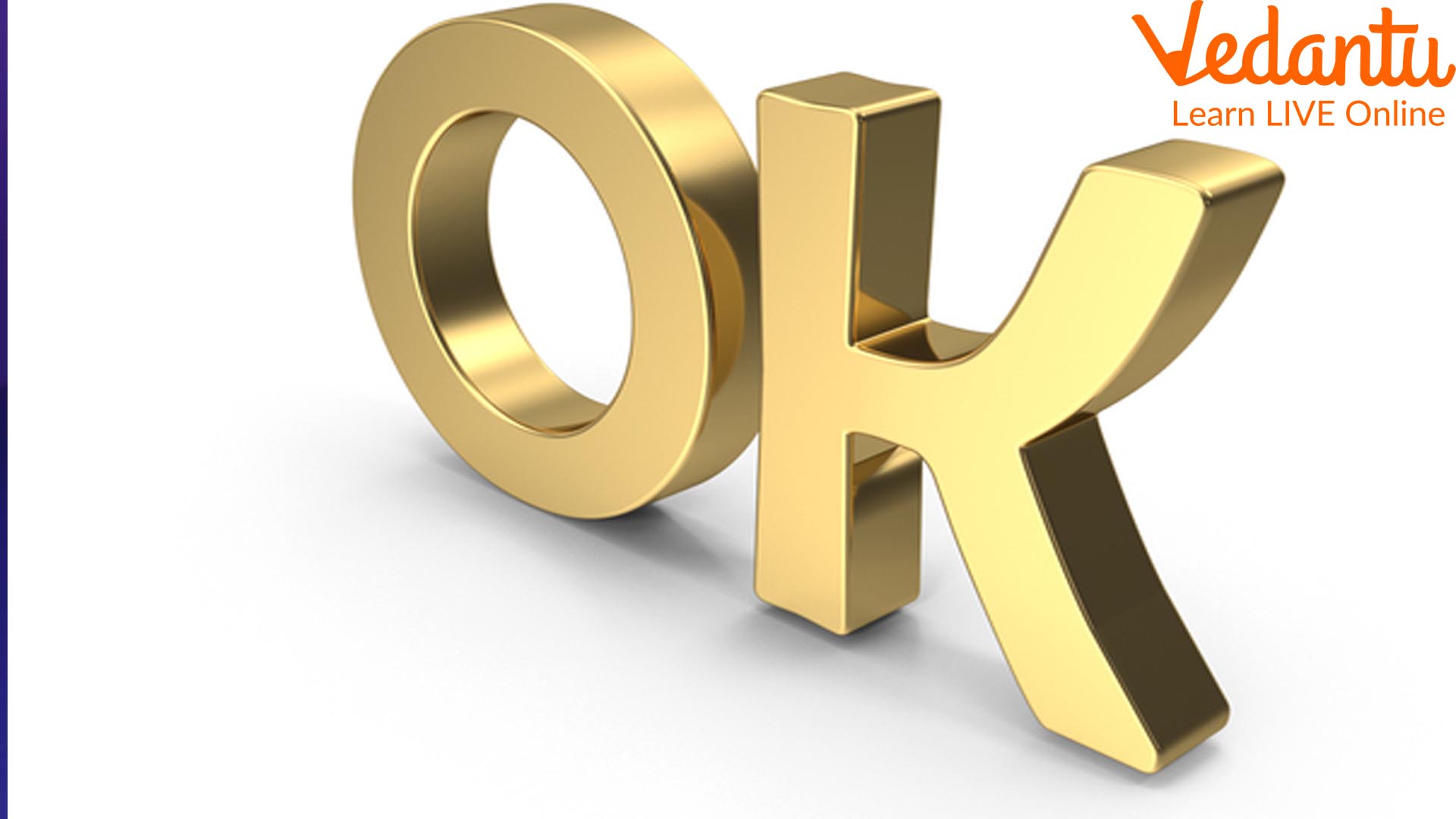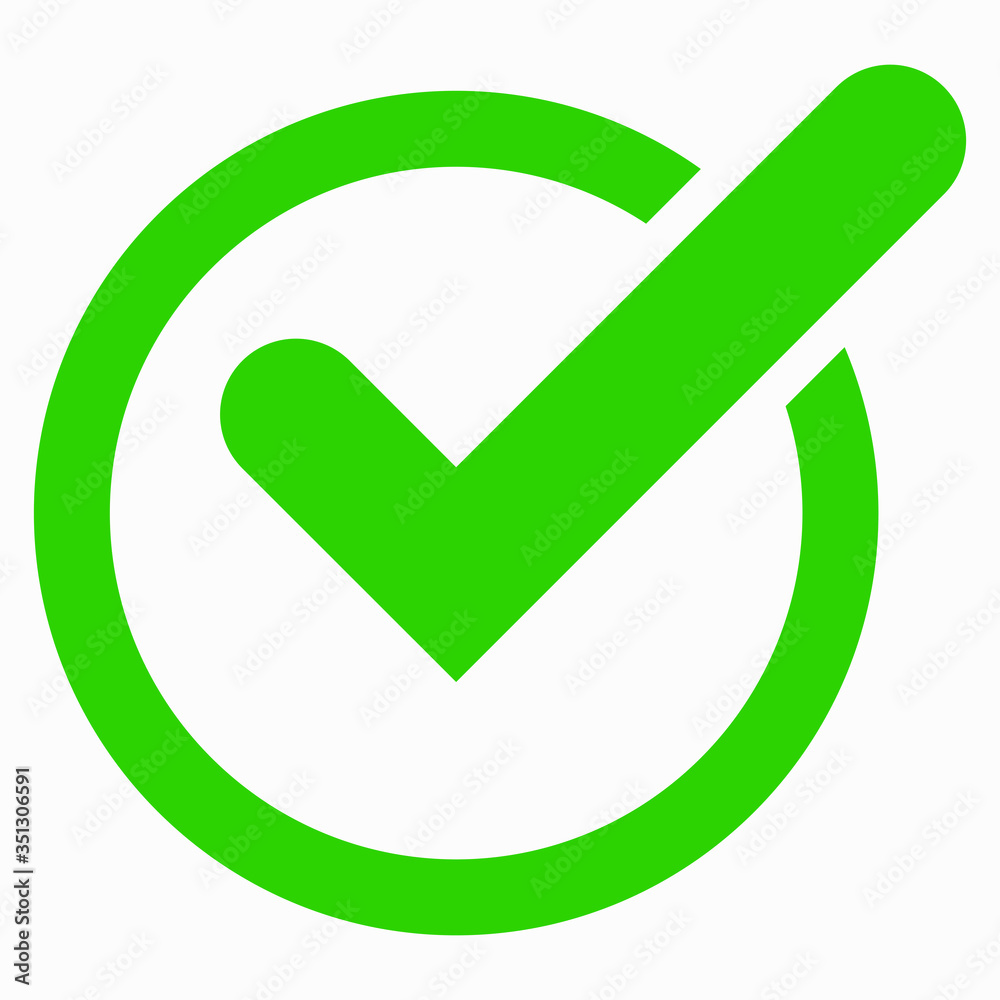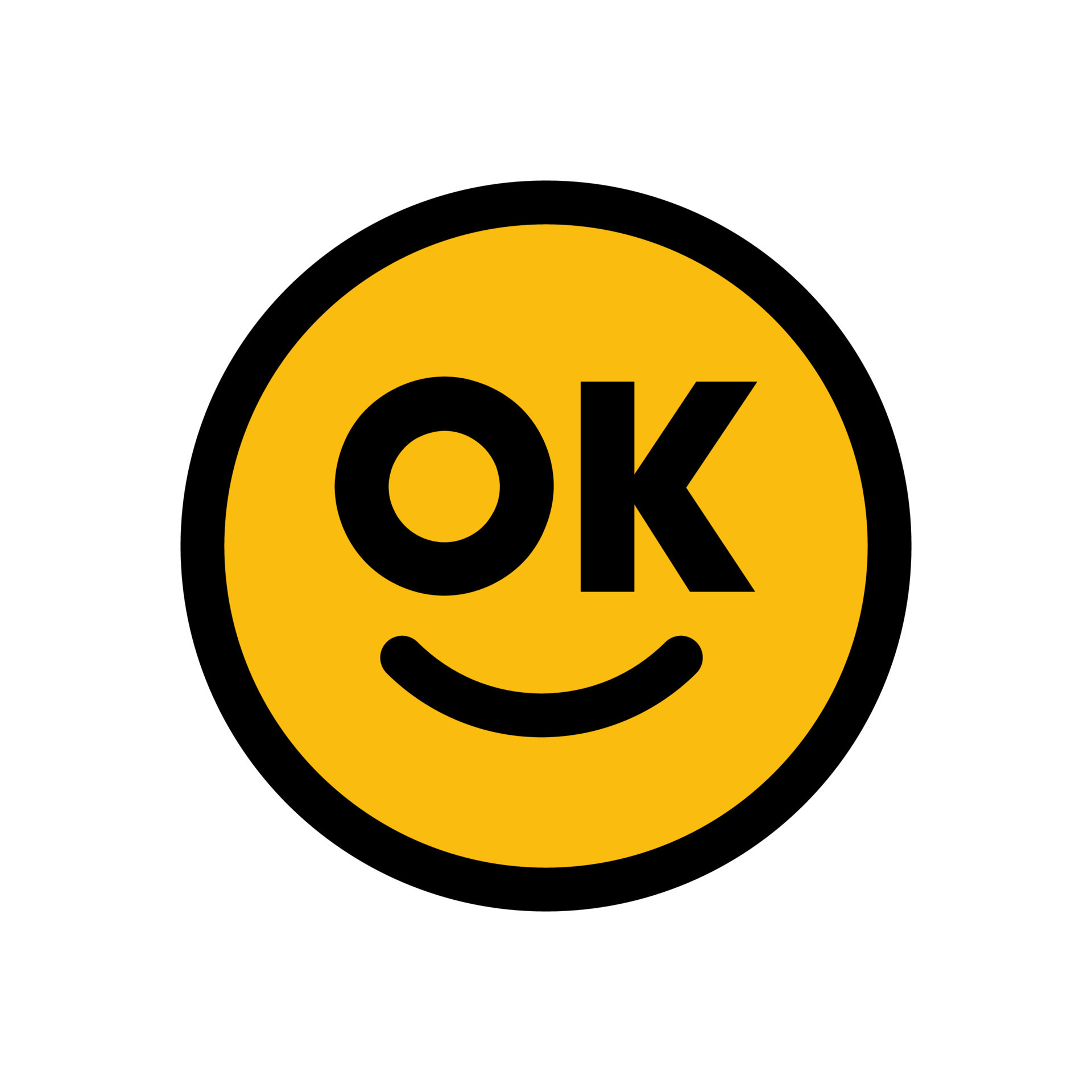You know, it's almost funny how one little sound, just two letters really, manages to show up everywhere. That word, "OK," it's a sort of universal sign, isn't it? You hear it, you see it, and you just get it. It’s a pretty big deal in how people talk to each other, a real simple way to make things clear.
So, you might spell it "okay," or perhaps you've seen it as "o.k." or even "okeh" in older writings. There are, actually, quite a few ways folks have written it down over time. It’s an English word, yes, but it really got its start, like, in American English. It tends to be a way of showing you're good with something, that you accept it, or that you're in agreement with a thought or a plan. It’s just a little word, but it does so much heavy lifting in conversations.
Apparently, for something so common, its true beginnings are a bit of a mystery, you know? People have wondered for a long time where this particular bit of language came from. It's almost like a little puzzle, how a word that means so much to so many, could have such unclear roots. We're talking about a word that, in a way, just pops up in conversations all over the globe, yet its full story is still being pieced together.
- Social Media Girls Forum
- Web Ssh Raspberry Pi Download
- Does David Baszucki Have Kids
- Bryce Harper Religion
- Jake From State Farm Insurance
Table of Contents
- The Ever-Present Word: What is "OK" Anyway?
- Where Did "OK" Come From?
- How Do We Use "OK" Every Day?
- The Core Message: What "OK" Truly Stands For
- Is "OK" Always the Same as "Yes"?
- "OK" in the Cultural Fabric
- Exploring the Different Forms of "OK"
- The Unending Appeal of "OK"
The Ever-Present Word: What is "OK" Anyway?
You know, if you stop and think about it, "OK" is pretty much everywhere. It’s a short word, just two letters, but it carries a lot of weight. We use it for so many different things, from saying that something is good to simply agreeing with someone. It’s a rather common way to communicate that things are going along just fine, or that you’re happy with a situation. This simple word, it really is a workhorse in our daily conversations, isn't it?
It's interesting, too, how "OK" can be a quick nod that something is correct, or that it meets a certain standard. It’s the sort of word you might hear when someone checks off a list, confirming everything is in order. It’s also the opposite of saying something is bad, which is pretty clear, actually. So, in a way, it gives a stamp of approval, a little signal that all is well. It really is quite versatile, you know, for such a tiny bit of language.
Variations and Meanings of "OK" for "ok cha byrne"
When you hear the sound, "oh-kay," you probably picture those two letters, O and K. But, you know, there are quite a few ways people have chosen to write it down over the years. You'll see "okay" with an 'a' and a 'y', or sometimes just "o.k." with little dots. Then there's "okeh," which is a bit older, perhaps. These different spellings, they all point back to the same idea, which is pretty neat.
- Avril Lavigne Age
- William Finbar Kennedy
- Eric Jacob Knight
- Vnc Login Iot Free
- Jake Gyllenhaal Girlfriend
In terms of what it means, "OK" is really about showing you’re good with something. It’s about giving your acceptance, or perhaps your agreement. It could be about saying, "Yes, that works for me," or "I approve of that." So, if you were talking about something like "ok cha byrne," whatever that might be, the "ok" part would certainly suggest a sense of general approval or a state of being in order. It’s just a little word that carries a lot of positive weight, you know, in any phrase it finds itself in.
Where Did "OK" Come From?
For a word that's so widely used, its beginnings are, well, a bit hazy. People have argued about where "OK" truly came from for many, many years. It's not like we have one clear story that everyone agrees on. This word, which is, like, one of the most common bits of language across the globe, has a past that’s full of different ideas and theories. It’s pretty fascinating, honestly, how something so simple could have such a complex history.
Some folks have looked at old newspapers, others have thought about different languages, trying to piece together the puzzle. There are quite a few thoughts about what "OK" originally meant and how it first popped into use. It’s almost like a detective story, trying to figure out the true origin of this everyday word. The fact that its story is still debated just goes to show how deeply it’s woven into our way of speaking, even if we don't fully know its first steps.
The Disputed Beginnings of "OK" and the "cha byrne" Connection
The story of where "OK" started is not, you know, a simple, straightforward tale. For many years, people have had different ideas about its first appearance. Some theories point to a rather playful misspelling in a newspaper from Boston, way back when. Others suggest it might have come from different languages, like the Choctaw language, or even from the initials of someone’s name.
It’s really quite interesting to think about all the possibilities. These ideas about the word’s beginnings and its first meaning have been discussed for a long, long time. So, if we consider a phrase like "ok cha byrne," the "ok" part of it carries all this historical weight, all these different ideas about its origins. It’s a word that has traveled through time, picking up stories and theories along the way, making its appearance in countless expressions and situations, just like this one.
How Do We Use "OK" Every Day?
Think about how often you use "OK" in a single day. It’s quite a lot, isn't it? You might use it to ask if someone is good with something, like, "Is that plan OK with you?" Or you might use it to show that you agree, "OK, I'll do that." It’s a pretty flexible word, honestly, fitting into so many different conversational spots. It just helps things flow along, doesn't it?
It's also a word that can add a bit of emphasis, particularly when you put it at the start of what you're saying. You might begin a thought with, "OK, so here’s the thing..." This just helps to get people's attention, to signal that you're about to say something important. It’s a really common expression in English, very much a part of how we talk and interact with each other, you know, every single day.
Everyday Applications of "OK" for "ok cha byrne"
So, you can use "OK" when you want to check if something is acceptable. Like, if you're asking, "Is this arrangement ok cha byrne?" you're looking for confirmation that the situation is good, or that it meets approval. It's a simple way to get a quick yes or no, or just a nod of agreement. This word, it's quite handy for those moments when you need to confirm something quickly.
It also works when you’re showing that you're good with something, or that you're ready to do it. You might say, "OK, I’m ready to start," or "OK, I agree to that." It’s a word that helps people connect and get on the same page. So, in any scenario involving "ok cha byrne," the "ok" part would typically mean that whatever "cha byrne" refers to is either accepted, approved, or simply considered to be in a good state. It's very much about reaching a common understanding, you know?
The Core Message: What "OK" Truly Stands For
At its heart, "OK" is about agreement. It’s about saying "yes" without actually saying "yes" sometimes. It’s about indicating that something is good, or that it is correct. It’s that little signal that everything is in order, that there are no problems. This core meaning is why it's so useful and why it's spread so far and wide.
It can also show that you understand something. If someone explains a situation to you, and you say "OK," it means you’ve grasped what they’re saying. It’s a simple way to confirm that you’re on the same page, that there’s a shared understanding. So, really, it’s a word that helps to smooth out conversations and make sure everyone is aligned, which is pretty important, you know?
Is "OK" Always the Same as "Yes"?
It’s a good question, whether "OK" can always stand in for "yes." Often, it can. If someone asks, "Can you do this?" and you say "OK," it generally means you will. It’s a way of giving your assent, of saying you’re good with the request. So, in many situations, they work in a very similar way, almost like twins.
However, there are subtle differences, too. "Yes" is a direct answer, a firm affirmation. "OK" can sometimes be a bit more casual, or it might suggest that something is merely acceptable, not necessarily great. For example, if you ask, "How was the movie?" and someone says, "It was OK," it probably wasn't amazing, just, you know, acceptable. So, while they often overlap, "OK" has its own particular flavor and uses.
"OK" in the Cultural Fabric
This word, "OK," has really found its way into all sorts of places. You can hear it in songs, see it in movies, and it’s been part of discussions about language for a long time. The text mentions things like "Silver Linings Playbook" and "Pete Seeger," which gives you a hint of how it pops up in creative works and popular culture. It's pretty cool how a word can become so woven into our shared experiences, isn't it?
It’s not just a word we use, but a word that has, in a way, become a part of our collective stories. From a simple conversation to a line in a film, "OK" just shows up, fitting in naturally. It's a testament to its flexibility and its deep connection to how people communicate. It's almost like a quiet background player that's always there, making sure everything runs smoothly.
Exploring the Different Forms of "OK"
As we talked about a little bit earlier, "OK" has quite a few family members when it comes to spelling. You have the original "ok," then "okay," and even the older "okeh." The interesting thing is that all these different forms pretty much mean the same thing. They can be used interchangeably, whether you’re writing something informal, like a text message, or something a bit more formal, like a business email.
It’s not often you find words with so many accepted spellings that all carry the exact same weight and meaning. This just shows how adaptable "OK" is. It’s a word that’s been around for a good while, and it has, you know, just settled into various forms while keeping its core message intact. It's a pretty unique feature for a common expression, don't you think?
The Unending Appeal of "OK"
There’s something about "OK" that just makes it stick around. It’s a word that’s easy to say, easy to understand, and it gets the job done without a lot of fuss. It’s useful for asking if something is good, for expressing agreement, or just for showing that you’ve got the message. This informal word, it’s really quite powerful in its simplicity.
It’s a word that crosses boundaries, too. Even though it started in American English, it’s found its way into so many languages around the globe. This widespread use really speaks to its universal appeal. It’s a word that, basically, just works, and because of that, it continues to be a favorite way for people to connect and communicate with one another, day in and day out.
Related Resources:



Detail Author:
- Name : Torrance Cruickshank PhD
- Username : ernest36
- Email : bechtelar.mertie@hotmail.com
- Birthdate : 2007-06-17
- Address : 3675 Fahey Island New Wilhelmberg, OR 30160-4449
- Phone : 1-336-857-3865
- Company : VonRueden Group
- Job : Photographic Restorer
- Bio : Voluptatum accusamus sunt aut quaerat sed maiores. In vel ducimus id voluptatem adipisci consequatur possimus aliquid. Eos et sit eos velit repellendus minima.
Socials
twitter:
- url : https://twitter.com/carmenkozey
- username : carmenkozey
- bio : Error quam culpa unde omnis. Fugiat vero sed sed voluptatem magnam et. Deserunt sint saepe illo. Fuga corrupti quaerat eum. Repudiandae quia soluta ab.
- followers : 1677
- following : 1667
facebook:
- url : https://facebook.com/ckozey
- username : ckozey
- bio : Dolor voluptatibus dolor nisi beatae. Quia minima animi eum.
- followers : 4951
- following : 44